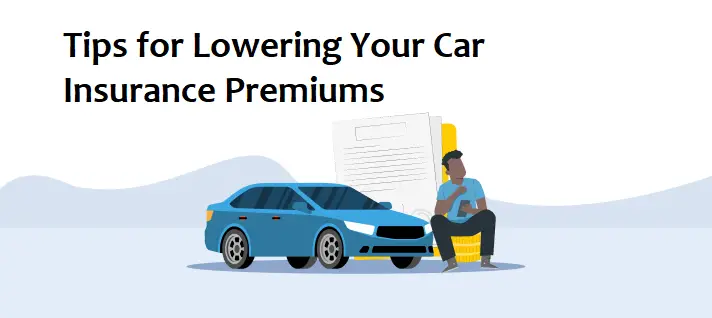When it comes to safeguarding your home and personal belongings, a standard homeowners insurance policy provides essential coverage. However, every home and homeowner is unique, and your basic policy may not cover everything you value. This is where home insurance riders come into play. Also known as endorsements or floaters, riders are optional add-ons that offer extended coverage beyond the limits and exclusions of a standard policy. Understanding home insurance riders you might need can make the difference between a successful claim and a financial setback.
In this comprehensive guide, we explore the most common and essential riders available, explain who needs them, and offer practical advice on choosing the right endorsements for your needs.

What Are Home Insurance Riders?
Home insurance riders are amendments to your homeowner’s policy that provide additional coverage for specific items, events, or circumstances that are either not covered or under-covered by the base policy. They allow you to tailor your insurance to better reflect your lifestyle and asset value.
For example, a standard homeowners insurance policy may limit coverage for jewelry to $1,500. If your engagement ring is worth $5,000, a jewelry rider would increase coverage to protect the full value of the item.
Why Riders Are Important
Understanding home insurance riders you might need is essential because:
- Standard policies have limitations on categories such as jewelry, electronics, and collectibles.
- Unique risks require special coverage, like living in a flood-prone area or running a home business.
- Customizing your policy ensures your specific valuables and situations are properly insured.
Home Insurance Riders You Might Need
Below is a detailed look at common riders that can be added to your homeowners insurance policy. Whether you own luxury items, operate a home office, or live in a high-risk area, these riders could be essential to your financial protection strategy.
1. Scheduled Personal Property Rider
This is one of the most common and valuable riders. It covers specific high-value personal items beyond the standard policy limits.
Items commonly covered include:
- Jewelry
- Fine art
- Antiques
- Musical instruments
- Firearms
- Collectibles (e.g., coins, stamps, sports memorabilia)
Benefits:
- Full replacement value coverage
- Broader protection, including accidental loss
- Often no deductible
Who needs it? Anyone with valuable personal possessions that exceed the standard coverage limits should consider this rider.
2. Home Business Rider
Running a business from home? A standard policy won’t fully protect your business-related property or liabilities.
Coverage includes:
- Business equipment and supplies
- Inventory stored at home
- Liability coverage for business visitors
Who needs it? Freelancers, consultants, online sellers, and any professional operating out of their residence.
3. Water Backup Rider
While flooding is a separate issue (see Flood Insurance), water damage from backed-up drains or sump pump failures isn’t covered under most standard policies.
This rider covers:
- Water damage from sewer or drain backup
- Sump pump overflow
- Repair and restoration costs
Who needs it? Homeowners with basements or older plumbing systems.
4. Identity Theft Rider
Identity theft can lead to significant financial and emotional stress. This rider helps cover the cost of recovering your identity.
Coverage typically includes:
- Legal fees
- Lost wages
- Reimbursement for fraudulent charges
- Credit monitoring services
Who needs it? Everyone, but particularly individuals who do a lot of online shopping or banking.
5. Equipment Breakdown Rider
This provides coverage for major household systems and appliances that break down due to mechanical or electrical failure.
Covers items like:
- HVAC systems
- Refrigerators
- Washers and dryers
- Water heaters
Benefits:
- Cheaper than separate warranties
- Helps bridge the gap between wear-and-tear and catastrophic failure
Who needs it? Anyone wanting extra protection for essential home systems.
6. Building Code Upgrade Rider
If your home is damaged and must be rebuilt or repaired, local building codes may require upgrades. This rider covers the cost difference.
Covers:
- Compliance-related construction expenses
- Modernization requirements
Who needs it? Owners of older homes that may not meet current building standards.
7. Green Improvement Rider
If your home is damaged, this rider allows you to rebuild or replace systems with environmentally friendly options.
Examples include:
- Energy-efficient appliances
- Solar panels
- Sustainable materials
Who needs it? Environmentally conscious homeowners who value sustainable living.
8. Inflation Guard Rider
The cost of materials and labor increases over time. This rider adjusts your coverage limits to keep up with inflation.
Benefits:
- Ensures your policy maintains adequate coverage
- Adjusts limits automatically
Who needs it? Everyone, especially during periods of high inflation or rising construction costs.
9. Flood Insurance Rider (or Separate Policy)
Most standard home insurance policies do not cover flood damage. While some insurers offer riders, most require a separate policy.
Flood insurance covers:
- Structural damage
- Electrical and plumbing systems
- Personal belongings
Who needs it? Homeowners in flood-prone areas or near bodies of water. Check FEMA flood zone maps to assess your risk.
10. Earthquake Rider
Like flood damage, earthquake damage is not covered by standard policies.
Coverage includes:
- Structural repairs
- Foundation damage
- Personal property replacement
Who needs it? Homeowners in seismically active regions, such as California or parts of the Pacific Northwest.
11. Service Line Protection Rider
Covers the cost to repair or replace damaged underground service lines such as:
- Water pipes
- Electrical wiring
- Natural gas lines
Who needs it? Homeowners responsible for utility lines on their property.
12. Personal Injury Liability Rider
Extends your liability coverage beyond bodily injury and property damage to include:
- Libel
- Slander
- False arrest
- Invasion of privacy
Who needs it? Homeowners active on social media, bloggers, or landlords.
How to Determine Which Riders You Need
1. Conduct a Home Inventory
Evaluate the value of your personal possessions and identify which items exceed your policy’s coverage limits.
2. Assess Your Lifestyle
Do you work from home? Own expensive electronics or art? Understanding your lifestyle can help pinpoint vulnerabilities.
3. Review Policy Exclusions
Read your current homeowner’s insurance policy thoroughly to identify gaps or limitations in coverage.
4. Consult With Your Insurance Agent
An insurance professional can help tailor your policy to your specific needs and recommend suitable riders.
5. Reevaluate Annually
Your insurance needs may change over time due to acquisitions, renovations, or life changes. Make rider evaluations part of your annual financial review.
Tips for Adding Riders to Your Policy
- Document Everything: Keep receipts, appraisals, and photos of high-value items.
- Compare Costs: Not all riders are priced equally. Shop around or negotiate with your insurer.
- Bundle Smartly: You may qualify for discounts by bundling multiple riders or policies.
- Don’t Over-Insure: Only insure items that are difficult or expensive to replace.
- Read the Fine Print: Understand what each rider does and doesn’t cover.
Common Mistakes to Avoid
- Assuming Full Coverage: Don’t make assumptions about what your base policy includes.
- Forgetting to Update Riders: Keep your endorsements up to date with your current possessions.
- Ignoring Local Risks: Weather, geography, and building codes vary—your coverage should reflect those realities.
- Skipping Professional Appraisals: For valuable art or antiques, an official appraisal ensures accurate coverage.
Final Thoughts
Choosing the right home insurance riders you might need is about more than just adding protection—it’s about peace of mind. These optional endorsements provide personalized coverage that a one-size-fits-all policy simply cannot. From insuring heirloom jewelry to safeguarding a home-based business, riders help you stay financially resilient in the face of unexpected events.
While it may take time to assess your needs and add the right riders, the effort can save you thousands of dollars and a great deal of stress in the future. Take inventory, talk to your insurance provider, and make informed choices that reflect your lifestyle, assets, and risks.
If this article was informative also checkout: Do Renters Really Need Insurance
also checkout: Click Here



